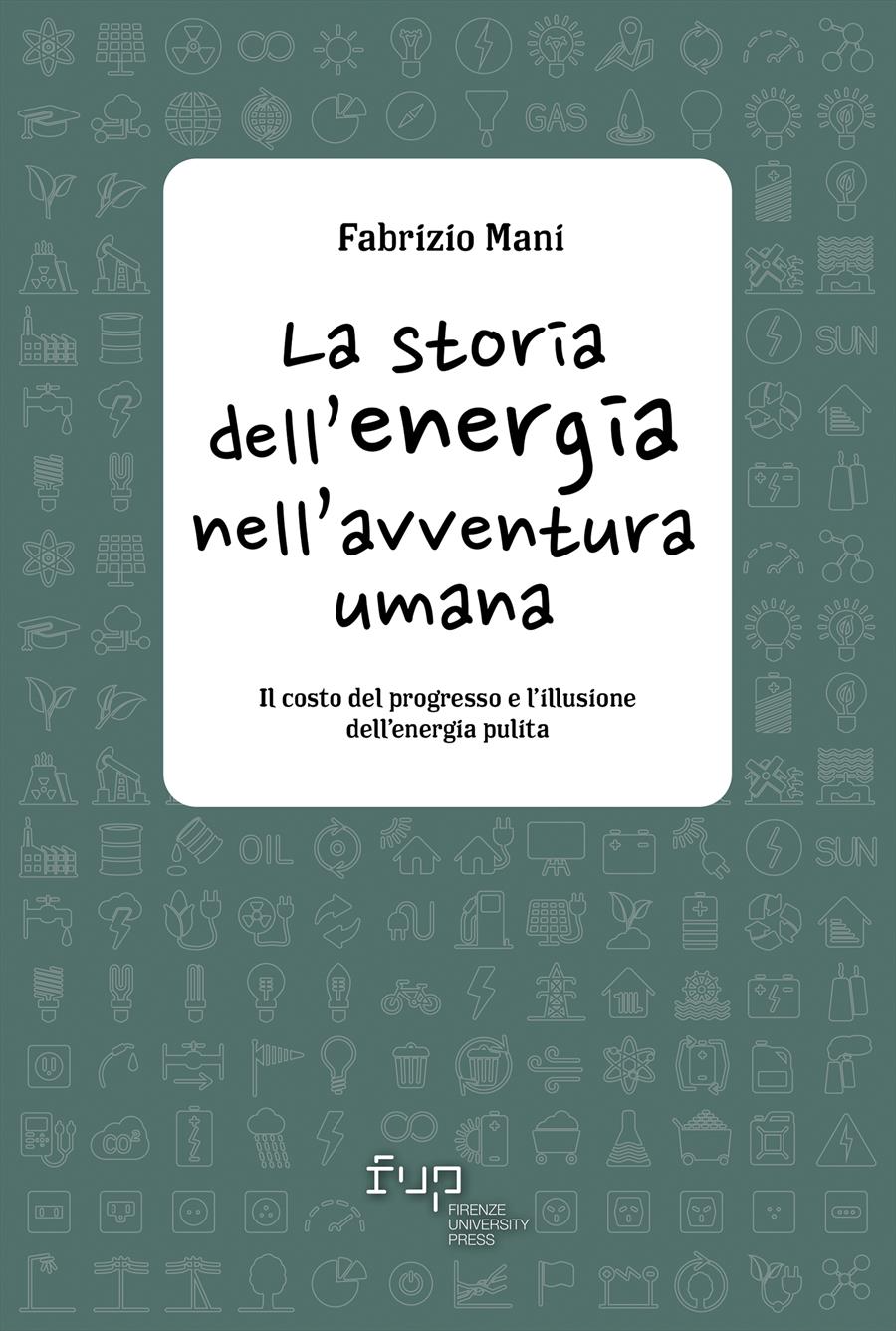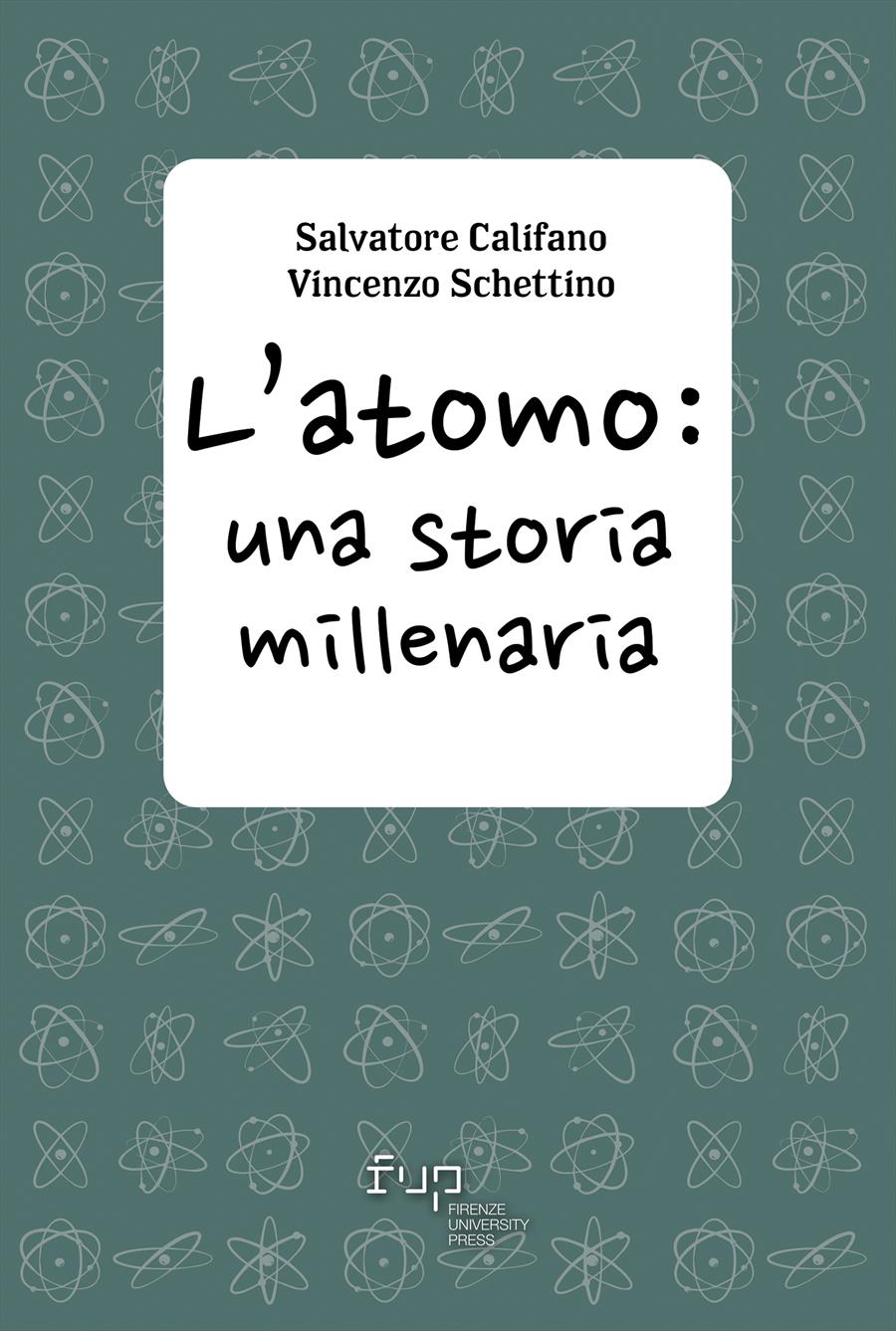La storia dell’energia nell’avventura umana
Il costo del progresso e l’illusione dell’energia pulita
- Fabrizio Mani,
Energy is the engine of human progress and human history is marked by the quantity and characteristics of available resources. In the last century, with the world population quadrupling and the use of new technologies, energy consumption has accelerated dramatically. The combustion of fossil fuels has increased the concentration of “greenhouse gases” and caused global temperatures to rise, resulting in climate change. Europe, a leader in the fight against climate change, has a modest influence globally, and it is illusory to think that there are now effective solutions that can be shared by all countries for resolving environmental problems quickly. Certainly, electric cars are not the answer. We will therefore have to adapt to the effects of climate change for many decades to come, even if scientific progress discovers energy systems which are unlimited and “cleaner” than today.
- Keywords:
- Industrial Revolution,
- Carbon Footprint,
- Energy Transition,
- Technological Optimism,
- Environmental Accountability,
- DOI: 10.36253/979-12-215-0131-5
- Series: Semine
- Scientific Board
- Language: Italian
- Subjects: Ecology
Purchase
University of Florence, Italy - ORCID: 0000-0003-2049-8400
- Al-Khalili, Jim, a cura di. 2018. Il futuro che verrà. Torino: Bollati Boringhieri.
- Allen, Rober C. 2011. “La rivoluzione industriale inglese”. Bologna: il Mulino.
- Amaldi, Edoardo. 1997. Da via Panisperna all’America, a cura di Giovanni Battimelli e Michelangelo De Maria. Roma: Editori Riuniti.
- Armaroli, Nicola, e Vincenzo Balzani. 2011. Energia per l’astronave Terra. Bologna: Zanichelli.
- Baggott, Jim. 2013. Il Bosone di Higgis. Milano: Adelphi.
- Baldi, Mario. 2008. Pasquale Borracci, pioniere dell’automobilismo fiorentino. Firenze: Pagnini Editore.
- Ball, P. 2018. “Demografia.” In Il futuro che verrà, a cura di Jim Al-Khalili, 17-30. Torino: Bollati Boringhieri.
- Barbieri, Silvio. 1968. Il nostro onore di uomini. Bergamo: Edizioni Orobiche.
- Bardi, Ugo. 2003. La fine del Petrolio. Roma: Editori Riuniti.
- Battimelli, Giovanni. 2003. L’eredità di Fermi. Roma: Editori Riuniti.
- Bauman, Zygmunt. 2010. Consumo, dunque sono. Bari-Roma: Laterza.
- Bernstein, Jeremy. 2005. Il club dell’uranio di Hitler. Milano: Sironi Editore.
- Bertini, I., Mani, F., e C. Luchinat. 2016. Chimica, Materia, Tecnologia, Ambiente. Rozzano: CEA.
- Bowers, David, and Neil D. Selby. 2009. “Forensic Seismology and the Comprehensive Nuclear-Test-Ban Treaty.” Annual Review of Earth and Planetary Science 37: 209-36.
- Bramanti, Carlo. 2007. Nikola Tesla. Una vita per le invenzioni. Albino: Sandit Libri.
- Bramanti, Carlo. 2009. Il motore a vapore. Albino: Sandit Libri.
- Carlson, W. Bernard. 2019. Tesla. Milano: Hoepli.
- Cawthorne, Nigel. 2014. L’enigma di un genio. Roma: Newton Compton.
- Chinnici, Giorgio. 2017. Guarda caso. I meccanismi segreti del mondo quantistico. Milano: Hoepli.
- Commissione Europea. 2016. “Accordo di Parigi” (COP21-Paris). <//ec.europa.eu/clima/policies/international/negotiations/paris_it>.
- Crone, Hugo D. 1990. Chemicals and Society. Cambridge: Cambridge University Press.
- Cushman, R. M., Boden, T. A., Hook, L. A., Jones, S. B., Kaiser, D. P., and T. R. Nelson. 1999. Fiscal Year 1998 Annual Report, Carbon Dioxide Information Analysis Center, World Data Center. A for Atmospheric Trace Gases. Oak Ridge (Tenn., U.S.A.): Oak Ridge National Laboratory, U.S. Department of Energy.
- Darwin, Charles. 1989. L’origine della specie. Roma: Newton Compton.
- Davies, Paul. 1994. Dio e la nuova fisica. Milano: Mondadori.
- De Vincenzo, Domenico. 2020. Petrolio senza fine o fine del petrolio? Libreria Universitaria.
- Dickens, Charles. 2012. David Copperfield. Milano: Mondadori.
- Dowkins, Richard. 2006. L’orologiaio cieco. Milano: Mondatori.
- Egner, Robert E. 1979. Bertrand Russell in due parole. Milano: Longanesi & C.
- European Commission, Joint Research Centre, Schaaf, E., Olivier, J., Guizzardi, D., et al. 2017. “Fossil CO2 and GHG emissions of all world countries.” Publications Office. DOI: 10.2760/709792
- European Environment Agency. <www.eea.europa.eu/clima/policies/2020>.
- European Environment Information and Observation Network (Eionet). “Energy.” European Enviroment Agency. <www.eea.europa.eu/themes/energy>.
- Expo Metals. 2019. “Chi sono i 10 maggiori produttori di acciaio al mondo?” Expo Metals, 4 giugno, 2019. <https://www.expometals.net/it/news/chi-sono-i-10-maggiori-produttori-di-acciaio-al-mondo-id22126>.
- Fermi, Laura. 1965. Atomi in famiglia. Milano: Mondadori.
- Figuier, Louis. 1898. Il vapore e le sue applicazioni. Milano: Fratelli Treves.
- Foot Print Network. www.footprintnetworks.org
- Gates, Bill. 2021. Clima come evitare un disastro. Milano: La nave di Teseo.
- Gee, Henry. 2016. La specie imprevista. Bologna: il Mulino.
- Gould, Stephen J. 2018. La vita meravigliosa. Milano: Feltrinelli.
- Greco, Piero. 2014. La scienza e l’Europa dalle origini al XIII secolo. Roma: L’Asino d’Oro.
- Hahn, O., Strassmann, F. 1939. “Über den Nachweis und das Verhalten der bei der Bestrahlung des Urans mittels Neutronen entstehenden Erdalkalimetalle.” Die Naturwissenschaften 27 (1): 11-5. DOI: 10.1007/BF01488241
- Harari, Yuval Noah. 2017. Sapiens, da animali a dèi. Breve storia dell’umanità. Milano: Bompiani,
- Harari, Yuval Noah. 2019. Homo Deus. Breve storia del futuro. Milano: Bompiani.
- Harris, Marvin. 2002. La nostra specie. Milano: BUR.
- Hartwell, Ronald M. 1973. “La rivoluzione industriale inglese”. Roma-Bari: Laterza.
- IPCC, 2014. Climate Change 2014: Synthesis Report. Contribution of Working Groups I, II and III to the Fifth Assessment Report of the Intergovernmental Panel on Climate Change, edited by R. K. Pachauri and L.A. Meyer. Geneva: IPCC.
- IPCC. 2007. Climate Change 2007, Synthesis Report. Contribution to the Fourth Assessment Report of the Intergovernmental Panel on Climate Change. Cambridge: Cambridge University Press.
- Kaplan, Jerry. 2017. Intelligenza artificiale. Milano: LUISS University press.
- Kucharski, Adam. 2018. “Il futuro della medicina.” In Il futuro che verrà, a cura di Jim Al-Khalili, 59-70. Torino: Bollati Boringhieri.
- Kurzweill, R. 2008. La singolarità è vicina. Milano: Apogeo.
- Latouche, Serge. 2018. La scommessa della decrescita. Milano: Feltrinelli.
- Lebrec, Ulysse, Paumard, Victorien, O’Leary, Michael J., and Simon C. Lang. 2021. “Towards a regional high-resolution bathymetry of the North West Shelf of Australia based on Sentinel-2 satellite images, 3D seismic surveys, and historical datasets.” Earth Syst. Sci. Data 13: 5191-5212. DOI: 10.5194/essd-13-5191-2021
- Livio, Mario. 2010. Dio è un matematico. Milano: BUR.
- Luminet, Jean-Pierre. 2011. La parrucca di Newton”. Roma: La Lepre edizioni.
- Magrini, Marco. 2017. Cervello. Manuale dell’utente. Firenze: Giunti editore.
- Magris, Claudio. 2008. L’infinito viaggiare. Milano: Mondadori.
- Mantoux, Paul. 1995. La rivoluzione industriale. Roma: Editori Riuniti.
- Meazzini, Giulio. 2004. “Oppenheimer e la bomba.” Città nuova, 23 luglio, 2004. <https://www.cittanuova.it/oppenheimer-e-la-bomba/?ms=006&se=007>.
- Metz, B., Davidson, O., de Coninck, H., Loos, M., and L. Meyer. 2005. IPCC Special Report on CO2 Capture and Storage. Cambridge: Cambridge University Press. <www.ipcc.ch/ipccreports/srccs.htm>.
- Montanelli, Indro. 2018. Io e il Duce. Segrate: Rizzoli.
- Nicolazzi, Massimo. 2019. Elogio del Petrolio. Milano: Feltrinelli.
- Penrose, Roger. 2020. La strada che porta alla realtà. Milano: BUR.
- Rifkin, Jeremy. 2002. Economia all’idrogeno. Milano: Mondatori.
- Rossi, Francesca. 2019. Il confine del futuro. Milano: Feltrinelli.
- Rouzé, Michel. 1975. Oppenheimer. Roma: Edizioni Accademia
- Rubin, Jeff. 2010. Che fine ha fatto il petrolio? Roma: Elliot edizioni.
- Russell, Bertrand. 1969. Ritratti a memoria. Milano: Longanesi & C.
- Sciascia, Leonardo. 1975. La scomparsa di Majorana. Torino: Einaudi.
- Segré, Emilio. 1987. Enrico Fermi, Fisico. Bologna: Zanichelli.
- Smith, Adam. 1776. The Wealth of Nations. London: W. Strahan and T. Cadell Ed.
- Stahel, W. 2016. “The circular economy.” Nature 531: 435-38. DOI: 10.1038/531435a
- Susskind, Leonard, e Art Friedman. 2015. Meccanica quantistica. Milano: Raffaello Cortina.
- Tegmark, Max. 2018. Vita 3.0. Essere umani nell’era dell’intelligenza artificiale. Milano: Raffaello Cortina.
- Toynbee, Arnold J. 2004. La rivoluzione industriale. Roma: Odradek edizioni.
- UN Climate Change Conference UK. 2021. “Gli obiettivi della COP26 Glasgow”. <//ukcop26.org/it/gli-obiettivi-della-COP26>.
- United Nations Scientific Committee on the Effects of Atomic Radiation, UNSCEAR. 2010. Sources and effects of ionization Radiations. Report to the General Assembly with Scientific Annexes, vol. 1. New York: United Nations Publications.
- US Environmental Protection Agency. <www.epa.gov>.
- Wenor, Leif. 2016. Il re nero. Milano: Luiss University Press.
- Wilson, E. O. 2013. La conquista sociale della Terra. Milano: Raffaello Cortina.
- World Energy Council. <https://www.worldenergy.org/publications>.
- Wrangham, Richard. 2014. L’intelligenza del fuoco. Torino: Bollati Boringhieri.
- Yinke, Deng. 2011. Ancient Chinese Inventions. Cambridge: Cambridge University Press.
- Publication Year: 2024
- Pages: 232
- eISBN: 979-12-215-0131-5
- Content License: All rights reserved
- © 2024 Firenze University Press
- Publication Year: 2024
- eISBN: 979-12-215-0132-2
- Content License: All rights reserved
- © 2024 Firenze University Press
- Publication Year: 2024
- Pages: 232
- ISBN: 979-12-215-0130-8
- Content License: All rights reserved
- © 2024 Firenze University Press
- Publication Year: 2024
- eISBN: 979-12-215-0353-1
- Content License: All rights reserved
- © 2024 Firenze University Press
Bibliographic Information
Book Title
La storia dell’energia nell’avventura umana
Book Subtitle
Il costo del progresso e l’illusione dell’energia pulita
Authors
Fabrizio Mani
Peer Reviewed
Number of Pages
232
Publication Year
2024
Copyright Information
© 2024 Firenze University Press
Content License
Metadata License
Publisher Name
Firenze University Press
DOI
10.36253/979-12-215-0131-5
ISBN Print
979-12-215-0130-8
eISBN (pdf)
979-12-215-0131-5
eISBN (epub)
979-12-215-0132-2
eISBN (xml)
979-12-215-0353-1
Series Title
Semine

